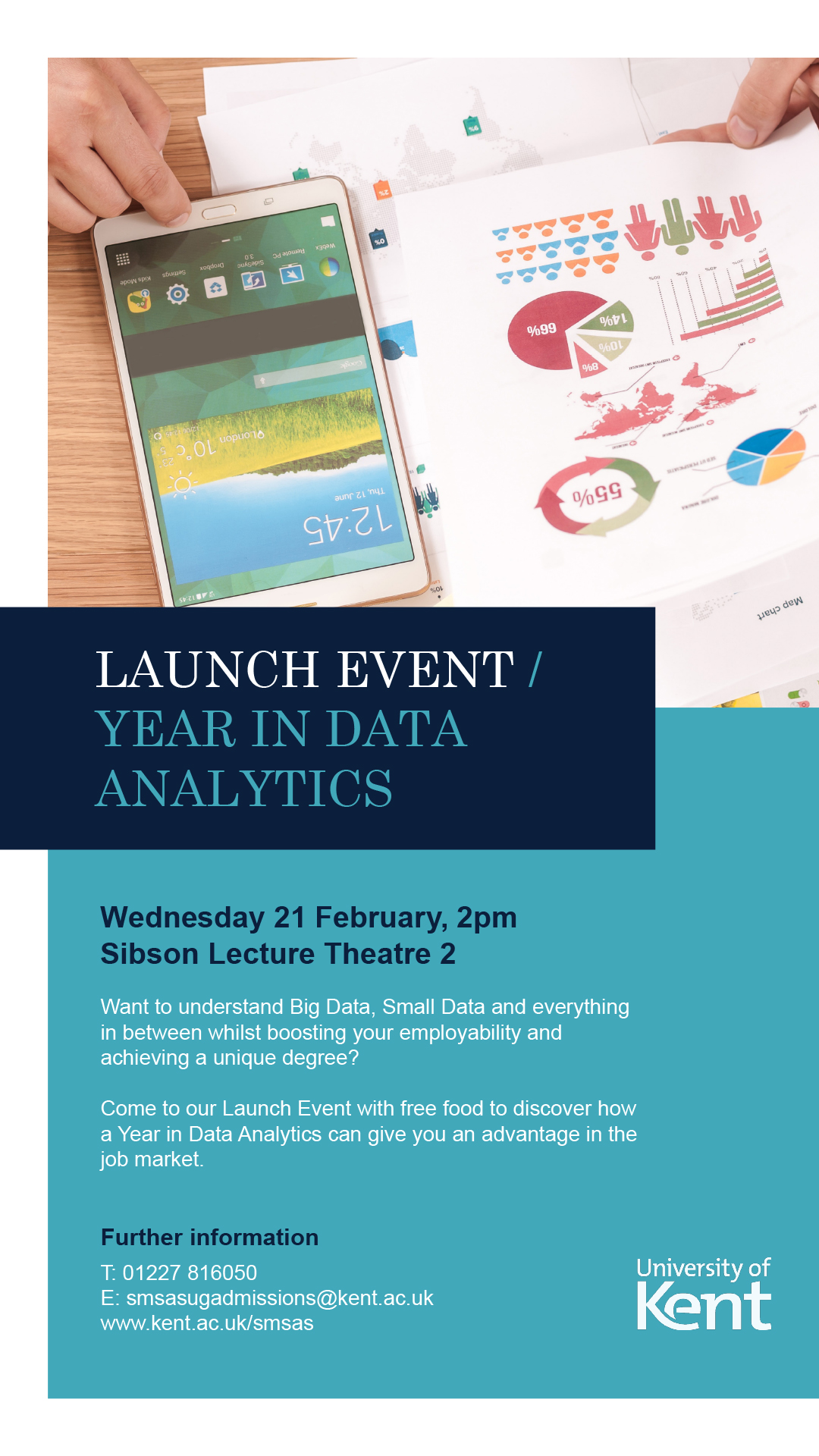
The School of Mathematics, Statistics and Actuarial Science is launching a new one-year, self-contained programme called Year in Data Analytics. SMSAS is hosting a Launch Event on Wednesday 21 February, 2pm – 3pm in Sibson Lecture Theatre 2 with FREE FOOD for students interested in learning more about the programme.
More information can be found https://www.kent.ac.uk/smsas/programmes/year_in_data_analytics.html.
Why should students consider adding a Year in Data Analytics to their degree?
Data plays a significant role in today’s world, from predicting your shopping habits and personalising your social media feeds, to determining your eligibility to buy a home and influencing our accessibility to healthcare, social care and much more. Data is used in all sectors in various ways, and knowing how to understand different datasets can prove invaluable when entering the job market of our ever evolving and data-driven world.
Entry Requirements
The programme is open to all UG Kent students (excluding those from SMSAS and those registered on the Q-Step programme) and can be taken either in between Stage 2 and Stage 3 or at the end of Stage 3.
Students do not need to have a recent mathematics or science background for entry onto the programme. However, they will need to have a B or above in Mathematics at GCSE (or equivalent) and achieve an average of 50% or above in their degree studies so far.
What will students learn?
This specifically designed programme will equip students with the skills, confidence and knowledge to collate, analyse and report on different size data sets.
During the Autumn term, students will be introduced to data analytics and the statistical software and techniques used to understand datasets. During this term they will also begin to explore the research and applications of quantitative data, and how they can create and understand their own data.
During the Spring term, students will further develop their understanding of data analysis and statistical software, with a focus on presenting and communicating results. They will also explore what Big Data is and methods for analysing large datasets.
Towards the end of the Spring term students will be introduced to the individual project unit, where they will put into practice the skills and knowledge gained over the programme to collate, analyse and report on their own data. Their final project will be due towards the end of Summer term